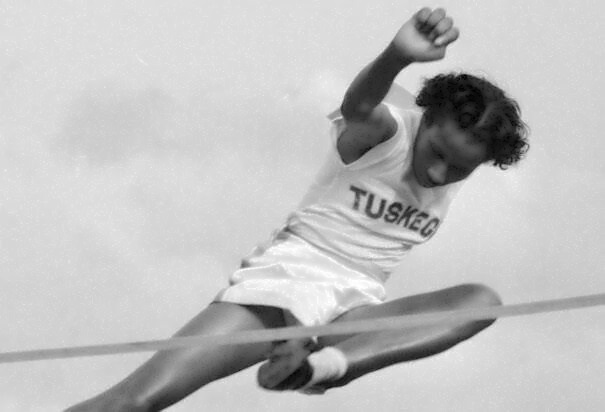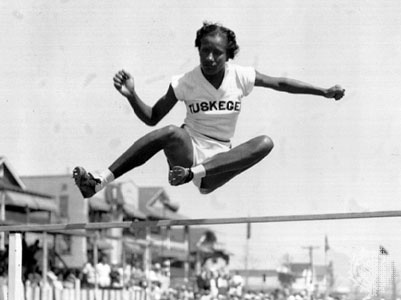Alice Coachman (1923 - 2014)
- Vanessa Roman
- Mar 9, 2024
- 2 min read

Alice Coachman's journey from the fields of Georgia to the pinnacle of Olympic glory is a remarkable tale of resilience, determination, and unparalleled talent. Born in 1923 in Albany, Georgia, Coachman grew up in the segregated South, where racial prejudice and discrimination were rampant. Despite the challenges she faced, her upbringing instilled in her a strong sense of determination and resilience.
Raised in a close-knit family as the fifth of ten children, Coachman's parents, Fred and Evelyn Coachman, provided a supportive environment that nurtured her athletic talents. From a young age, Coachman displayed a natural aptitude for athletics, often competing in impromptu races with her siblings in the fields surrounding their home.
Coachman's talent caught the attention of Tuskegee Institute, a historically black college in Alabama known for its renowned athletic program. Under the guidance of coach Cleveland Abbott, Coachman's abilities flourished. She quickly established herself as a standout athlete, excelling in track and field events, particularly the high jump.
During her time at Tuskegee, Coachman set numerous records and earned accolades both on the track and in the classroom. Her exceptional performances garnered attention beyond the confines of the university, setting the stage for her remarkable journey to the Olympic Games.

In 1948, Coachman's hard work and dedication paid off when she earned a spot on the U.S. Olympic team for the London Games. Competing in the high jump, Coachman faced formidable competition on the world stage. However, she remained undeterred, fueled by her unwavering determination to succeed and her desire to make history.
At the 1948 London Olympics, Coachman's talent and determination shone brightly as she soared over the bar with grace and power, setting a new Olympic record and becoming the first black woman from any country to win an Olympic gold medal. Her victory not only broke barriers but also inspired generations of black athletes to pursue their dreams relentlessly.
After her historic Olympic win, Coachman faced challenges transitioning to life beyond the track. Despite limited opportunities for female athletes, she remained dedicated to promoting sports and encouraging young people to pursue their athletic dreams.

Coachman went on to earn a degree in home economics from Albany State College and worked as a teacher and coach. Throughout her life, she remained actively involved in sports, serving as a mentor and role model for aspiring athletes.

As we celebrate Coachman's legacy, let us remember her as more than just a sporting icon but as a trailblazer who defied the odds and championed equality in sports. Her story serves as a powerful reminder that with passion, perseverance, and unwavering belief in oneself, anything is possible. Alice Coachman's legacy continues to inspire women of color and athletes alike to reach for the stars and never give up on their dreams.












Comments